Peter & Laurie Lautzenheiser: Held In the Sky, Healed On the Ground
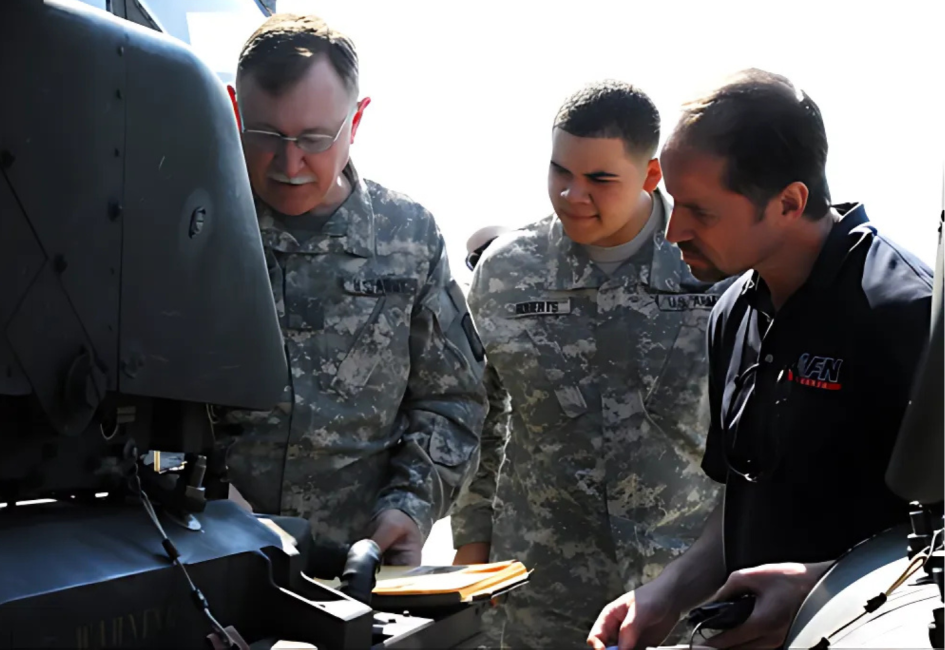

The helicopter rotors thundered overhead, slicing the sky in rhythmic fury. Inside the cockpit, Chief Warrant Officer 5 (CW5) Peter Lautzenheiser sat in stillness.
The chaos outside—vibrations, wind, radio chatter—faded into a muted hum behind layers of steel, glass, and finely honed discipline. That ability to focus, to quiet the noise, made Peter an extraordinary pilot. It kept him alive in war. But when the missions ended, and the cockpit faded into memory, that silence remained. And in the stillness, he began to drift.
Peter is the embodiment of devotion to service. For 42 years, he gave everything to his country—his time, his energy, his talents, and his heart. What began as a dream to fly turned into a legacy that spanned continents, conflicts, and countless missions.
At the time of his enlistment, the Army was the only branch that allowed him to fly straight out of high school without a college degree. That was all the incentive he needed. He joined intending to complete his minimum service and then return to Indiana. But that plan shifted quickly. After graduating from flight school, he was deployed immediately to Vietnam.
Following that, he was stationed in Germany, a transformative experience that convinced him to reenlist after a few years of college. What began as a temporary commitment slowly evolved into a lifelong mission. Despite two brief breaks in service, Peter returned to the Army each time, eventually building a career that spanned more than four decades.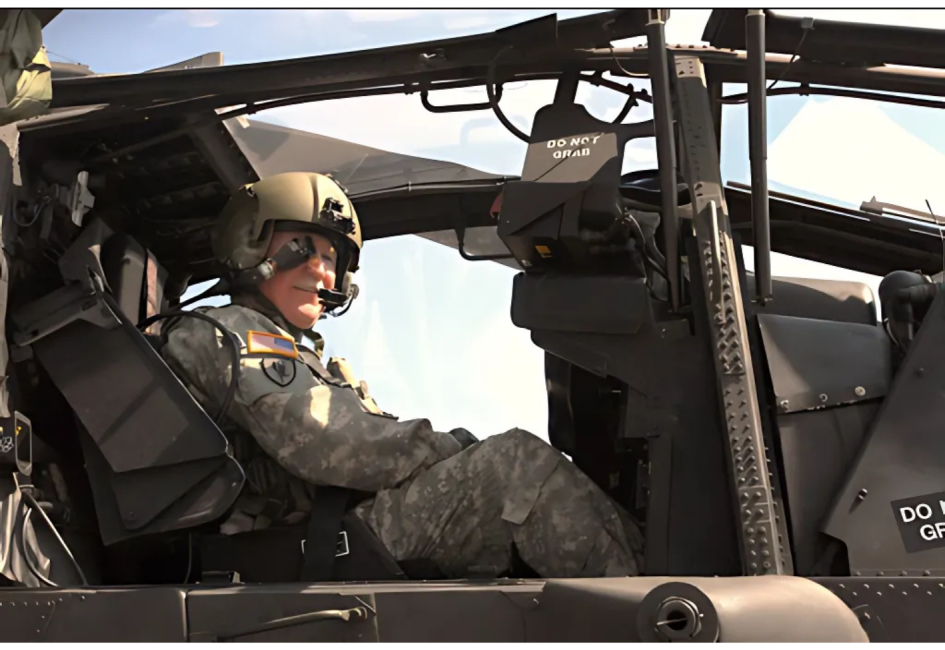
From the jungles of Southeast Asia to the deserts of Iraq and the mountains of Afghanistan, Peter flew Cobras and Apaches with precision and purpose. He was a pilot, a mentor, and a builder of communities. He set up a Warrant Officers Club in Germany. He trained, led, and inspired others. His commitment never wavered.
Even after retiring, he was recalled to active duty. After his final flight, he continued supporting the military as a contractor, helping to establish a flight school for the Afghan Air Force. Service wasn’t a chapter in Peter’s life—it was the whole book.
But with that service came sacrifice.
His own brother, Michael, was listed as MIA in Vietnam after a helicopter crash. Close friends and fellow aviators were lost in combat, in training accidents, and in the quiet but deadly aftermath of war. He carried those losses with him, always.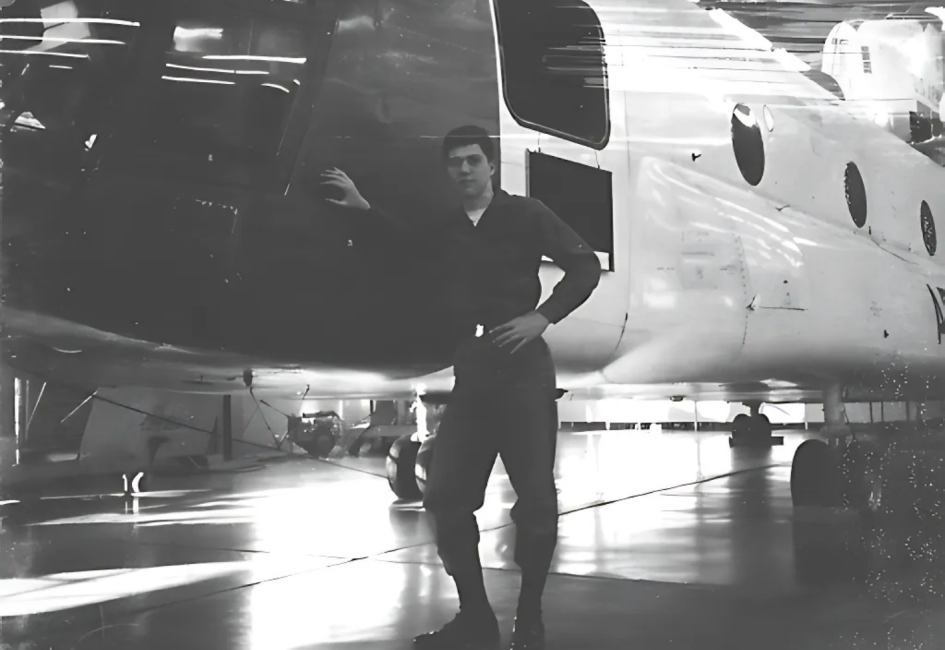
“I’ve never met anyone who’s lost so many close friends,” said Laurie, his wife. “The bond people in the military have is like no other. And I saw him suffering.”
When the pair met in 1994, Peter was balancing multiple roles: engineer, sheriff’s deputy, student, and pilot for the National Guard. Laurie admired his energy and drive, but over time, she realized it was his way of keeping the pain at bay. Constant movement, constant purpose. If he stayed busy enough, maybe the weight of grief wouldn’t catch up.
But eventually, it did.
After Peter’s final retirement in 2013, there was no mission to chase, no title to carry, and no uniform to wear. The structure and purpose that had grounded him for decades were suddenly gone.
In the Army, there’s a tradition for a pilot’s final flight. The fire department hoses them down, a celebratory ritual marking the end of a long and honorable career. Peter’s last flight was just that. His longtime colleague and fellow senior pilot was preparing for another deployment to Afghanistan with their unit. Peter stayed behind. His time was over.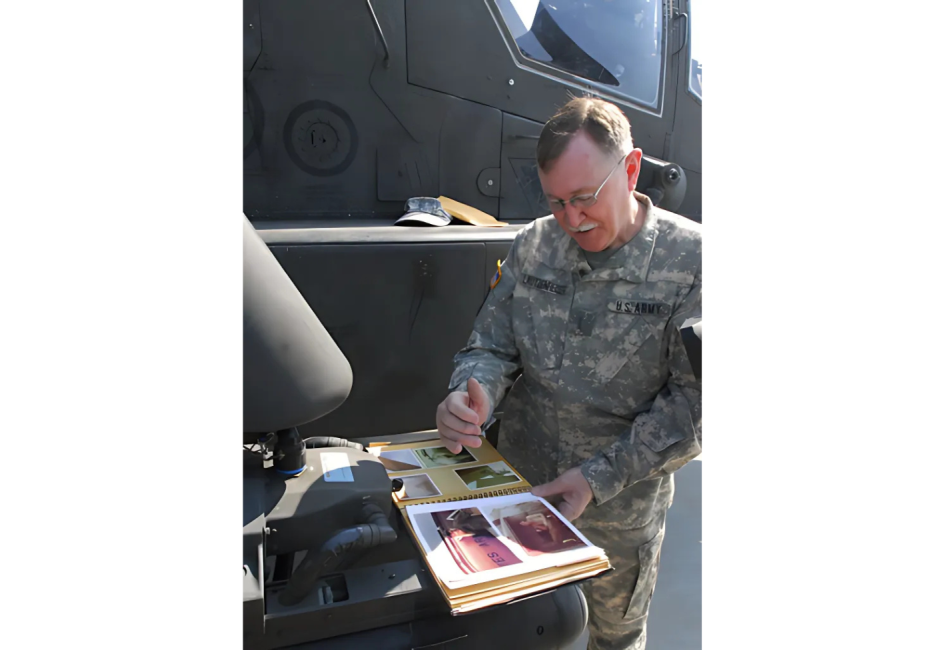
Three months later, that same friend was killed.
“That was gut-wrenching,” Peter said. “It really impacted me. He’d been flying for something like 37 years. We were bonded—we were the old guys. And he was buried at Arlington.” Peter paused and choked up at the memory. “It was tough. When you’re still connected to the military community, you’re going to know people who have been killed. It doesn’t become less difficult. That’s part of what I struggled with—and part of what Boulder Crest eventually helped me with.”
The silence he had once mastered in the cockpit began to creep into his daily life. Not peaceful silence, but a numbing quiet. Anger, restlessness, and detachment took hold. The man who had built camaraderie everywhere now withdrew from everyone.
Laurie saw it happening. And she didn’t know how to reach him.
One day, in a small newspaper in Patagonia, Arizona, she read an article about a place called the Boulder Crest Foundation. She shared it with Peter, and a photo of a parachutist at the grand opening caught his attention. He recognized the man’s name. “Unfortunately, that same service member died by suicide,” Peter said. “Later, his widow parachuted in with a large American flag trailing behind her. That was my first introduction to Boulder Crest—that photo in the newspaper and the man’s name I recognized.”
Still, Peter wasn’t ready to participate in any programming. But Laurie was.
Convinced of Boulder Crest’s potential, despite never having been there, she decided to take a leap. After one particularly difficult Memorial Day, when Peter had once again fallen into deep rumination over those he had lost, Laurie needed space to think. She and a friend headed down to Patagonia for a quiet weekend away. When she saw the Boulder Crest sign on the drive down, she decided to turn in. Her friend asked what they were doing. “We’re going in there,” Laurie said.
They reached a closed gate. Determined, Laurie made the decision to leave her car and opened it herself. She wasn’t thinking about the rules. She was thinking about saving her husband.
Inside, she found Jenni Jacob, a Boulder Crest team member, and asked if there was anyone she could talk to. That’s when Joe Wood came out, the Executive Director for Boulder Crest Arizona.
“He was amazing,” Laurie said. “We talked for 25 minutes. I cried. He listened. He said, ‘Just because you want Peter to participate in Warrior PATHH doesn’t mean he will, but we have a rest and relaxation program. Maybe you can get him out here for that.’”
Joe didn’t make promises, but he offered her an entry point: the Family Rest and Reconnection program (R&R).
Peter reluctantly agreed to go. To his surprise, there was no pressure. No one pushed. They simply created space. And that space planted a seed.
He read Struggle Well, the cornerstone book behind Boulder Crest’s philosophy of Posttraumatic Growth, and it struck a chord. After the Family R&R program, he kept reading, kept asking questions. Eventually, he submitted an application for Warrior PATHH.
Even then, on the day of the program, he nearly turned around. He delayed at his ranch. Drank a couple of beers. Thought about bailing.
But he didn’t. He drove through the gate.
“That’s where my doubts stayed, there at the front gate,” Peter said. “For the next seven days, it was overwhelming in some ways, but completely transformative. It was life-changing.”
He was back among warriors, in a small group of combat veterans led by guides who had walked similar paths. Every morning, Peter was there for PT. In every session, he was fully engaged. He wasn’t there to coast. He was there to do the work.
And the work worked.
“The difference between before and after was stark,” Laurie said. “Honestly, I thought Peter might come home and say we were getting divorced. And that would have been okay with me, as long as he was okay. But instead, I saw the man I knew before. Maybe even an improved version.”
Together, they continued to grow. They attended Couples PATHH, enrolled in Boulder Crest’s online course, and participated in SongwritingWith: Soldiers, penning a song together called Amor Fati—Latin for “love of fate.”
“We’ve tried to make the most of what Peter learned during Warrior PATHH,” Laurie said. “It’s transformed our lives and our relationship.”
Boulder Crest gave them a roadmap—not back to who they were, but forward to who they could become. Through Warrior PATHH, Peter rediscovered his mission. He traded silence for connection. And with Laurie at his side, he continues to live out the principles of Posttraumatic Growth.
Peter used to live inside the cockpit. Still. Isolated. Tuning out the distractions of the world around him. That quiet served him in war. But it wasn’t serving him in peace.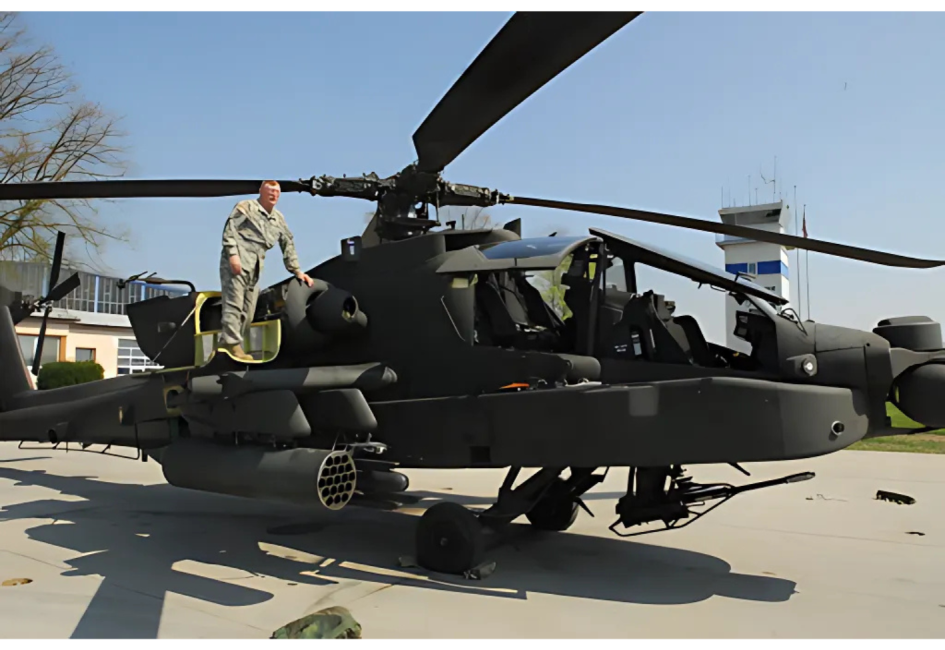
Boulder Crest didn’t just open the canopy. It helped him climb out. Now, for the first time in decades, Peter is flying a new kind of mission: one rooted in connection, purpose, and healing. Thanks to Boulder Crest and Warrior PATHH, Peter is no longer navigating that journey alone. He has the tools to soar again, and every day, he chooses to fly forward toward a future grounded not in struggle, but in strength.
In doing so, Peter has rediscovered what made him such an effective leader all those years: his gift for connection. From building a Warrant Officers Club in Germany to mentoring younger pilots in combat zones, he’s always been a multiplier—someone whose strength quietly lifts others. That part of him never left. It just needed the right space to return.
Today, Peter is building community again through conversation, compassion, and showing what’s possible after pain. His growth doesn’t end with him. It ripples outward, just as it always has.
If you or someone you love is still sitting in the silence, like Peter once was, let this be your sign to take the first step. Boulder Crest is waiting—just as it was for Peter and Laurie—with the space, support, and community to help you rediscover your mission and embrace a life of Posttraumatic Growth (PTG). We’re ready when you are.
Your support powers life-changing programs offered at no charge to veterans, military, first responders, and their families. With your help, our Warriors won't just survive — they'll thrive.

We have received your email sign-up. Please tell us more about yourself.